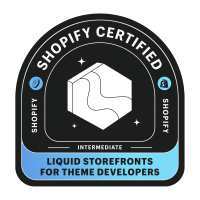For a system to be referred to as artificial intelligence, it must show human-like behaviors such as problem resolving, understanding, depiction, perception, motion, and manipulation. Therefore, AI systems can be separated into narrow AI and general AI.
Narrow AI implies that the device can execute one task at a time. On the other hand, general AI suggests that machines can think and operate as humans. Although artificial Intelligence is mainly known for its robot usage, today’s e-commerce market has a high need for Artificial Intelligence in different fields such as health care, retail, manufacturing, and sporting activities.
What is the difference between AI and machine learning? #
One of the main distinctions between AI and machine learning is that AI is defined as a system that can think for itself. Artificial intelligence plays a crucial function in retail since it can examine extensive customer data and personalize their actions based on their Internet behavior, acquisitions, and choices. Also, artificial intelligence makes it possible to identify a company’s rivals’ costs, needs, and target audience.
On the other hand, machine learning is a system that is offered information, and machine learning should find out how to export the information on its own. Programming formulas can do this also. In e-commerce, machine learning can be used for price optimization. Also, fraudulence defense can be spotted with machine learning, so this type of innovation can additionally be used for fraud security.
Artificial intelligence discovers fraud in some other way, by refining the recurring data that occurs fast – before deals are made. AI and machine learning are two terms usually used correspondingly because one can not exist without the other. Once machine learning can interact with people and make decisions by itself, it can be considered Artificial Intelligence.
AI in Search #
Only a few organizations use modern AI technology to improve their search engine rankings. AI is mainly used by the digital marketing department, where they collect data on ad targeting to streamline campaigns and evaluate emotional values on the company’s targeted market. It is believed that AI can boost the future of SEO beyond the use of simple keyword phrases.
AI innovation in Search is set apart right into three classifications: Artificial Narrow Intelligence( ANI), Artificial General Intelligence (AGI) and Artificial Super Intelligence (ASI).
ANI is utilized for different and specific jobs, and AGI is used for achieving human-like facts. Finally, ASI is the name given when AI reaches the capacity of human intelligence. ANI is used to conduct different online tasks such as emailing customers’ spam filters and Google translate.
When it involves SEO, ANI is qualified to highlight the best and most related SEO methods for websites. Below are three ways in which AI can be utilized in search:
Blog posts and influencers #
An organization can use text-processing analytics to find relevant influencers with a relevant community base. This can be Watson Analytics, which is used to look for different terms in the context of natural language. Things to check out when including influencers in your marketing strategy:
- Comments and social shares on articles: Do the messages obtain a lot of interaction?
- Last release time and angularity: Are they proactively releasing brand-new web content?
- Individual experience and style: Is the style updated and easy to use?
- Social system: Do they have significant social media websites following the platforms utilized by your sector? This can be advantageous when they share your material or content that has a web link to your site.
- Credibility: In some cases, private influencers or blog sites could write about hot topics you may not wish to get involved with (like national politics or religion).
More auction transparency #
Google AdWords is a blind auction, and as a result, AI can illuminate AdWords, thus shedding light on rivals’ actions. It does this by continually catching paid and organic search information without gaining access to AdWords. This subsequently supplies details on the competitor’s preferred search phrases.
Search Engines use AI to create ranking algorithms #
Internet search engines utilize AI to enhance their ranking formulas. Machines are educated to create an ideal checklist from a set of possible results, discovering over time from variables. An example of this is that if one search engine is ranked low, it can learn from the leading search engine and then use algorithms to bump itself to the top.
AI in customer service #
According to Gartner, a study shows that 89% of companies will certainly contend mostly on user experience in a couple of years. In 5 years, 85% of consumers will have connections with companies without interacting with humans. Below are a few instances demonstrating how companies can efficiently use AI in customer care.
AI organized email inquiries #
Checking out every email and finding out what every customer demands can be pretty time-consuming for a company. AI will undoubtedly remove this issue by quickening the procedure. This can be done by personalizing content, which marketeers state is 80% even more reliable. It is also feasible to check and label emails to ensure they can be redirected to the appropriate office. This kind of modern technology can minimize the variety of client requests by 50%.
Gathering helpful information for business #
Modern AI technology can assist e-commerce owners in gathering crucial pieces of information about their customers and engaging them later. This can also help anticipate what consumers may want in the future. Spotify already does this by showcasing their user most listened tracks. For example, they create customer trends on advertisements such as “Dear person who played ‘Sorry’ 42 times on Valentine’s Day, what did you do?”
Best AI features for e-commerce #
Artificial intelligence is critical in e-commerce. While there are multiple benefits of Artificial Intelligence in e-commerce, 4 major AI features dominate the industry today.
- Chatbots and other virtual assistants
- Intelligent Product Recommendations
- AI Personalization
- Inventory Management
Do you want to learn more about e-commerce? Continue reading about → Customer journey in e-commerce.

